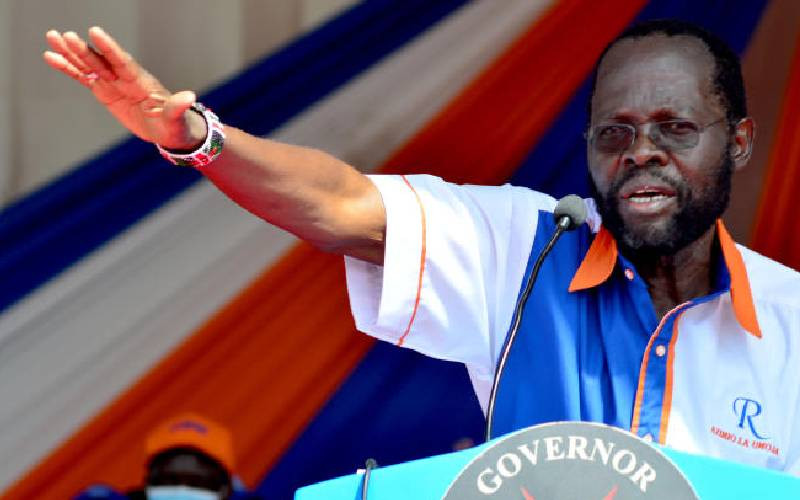×
The Standard e-Paper
Smart Minds Choose Us

Kisumu Governor Anyang' Nyong'o has emphasised the need to maintain the intent of the bipartisan talks between Kenya Kwanza and Azimio la Umoja One Kenya.
Speaking in Kisumu Thursday, Prof Nyong'o, who declared support for the talks, acknowledged the challenges faced by the committee, especially on discussions about the reconstitution of the Independent Electoral Boundaries Commission (IEBC).